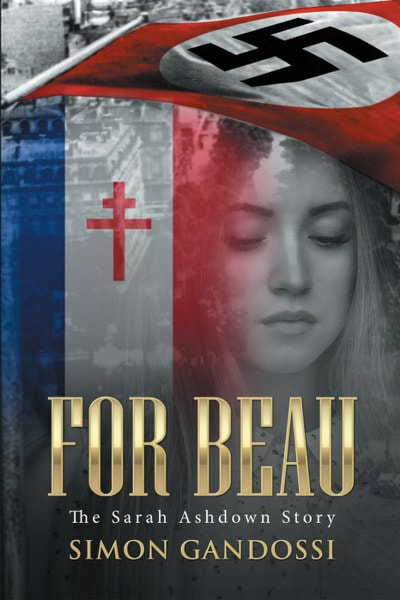
An elderly and fragile lady is helped by a young gentleman into the boardroom of the local TV
station. She puts a large bag on the floor and sits down and is left alone, waiting for a journalist.
After extensive
research, the station has discovered her story. Today is the anniversary of the beginning of the
Blitz, and Sarah’s story is so fascinating that the network is considering airing it on their current
affairs program. She is growing a little impatient as she waits to be interviewed.
Finally, after a fifteen-minute delay, a young and somewhat disorganised journalist wearing an
expensive grey suit opens the door and sits down next to her. He seems nervous, as if it’s his
first interview.
‘I am terribly sorry, Ms Ashdown; it’s been one of those mornings. I am Daniel Warwick,’ he said
as he ruffled through his papers.
‘I’d like to say I have all the time in the world, Mr Warwick,’ she says in a sarcastic tone.
‘Please, call me Daniel, and can I get you a tea or coffee?’ he asked politely.
‘Tea would be wonderful,’ she replied.
Daniel presses the button on the intercom and asks for two teas to be brought to the
boardroom. Sarah stares at him; she seems amused at his nervousness.
‘I want to thank you for taking the time and giving us the opportunity to hear your fascinating
story.’
‘I want to make it clear that any payment you provide for this interview you give directly to the
children’s hospital. They need it more than I do,’ Sarah replies.
‘It has already been done, along with a small donation from the staff themselves,’ he replies,
smiling.
Daniel takes out some papers from a red folder, and he spends a few moments glancing over
them. He takes out his recorder and places it on the table; he is finally ready to conduct the
interview. The tea is
brought in and Daniel turns on the recorder.
‘First, can you start by telling me a little about your family?’
Sarah sips her tea and puts the cup down.
‘I had a very good upbringing as a child; during my childhood, my parents would ensure they
never missed any special event in my life. Birthdays, school plays, and presentations, et cetera.
Then, in late 1939,my mother died from breast cancer. It was as if my whole life was taken away
from me. A piece of me died that day and I never felt the same again. The war changed my
father; he had gone from a man who was always there for me to one I hardly saw. We lived in
the same house for a long time, but we might as well have lived a thousand miles apart. He
worked for MI5—he was a very intelligent and well-respected man. He had risen through the
ranks, becoming so important that he often advised and met with key figures, including the
prime minister himself. I guess the pressures of his job changed him. All I had to do to make
myself feel better was to remember the past—the time when this man
would have given up anything to be with me.’
‘Your father being who he was, did you receive news before anyone else? Maybe advanced
news about how the war was going?’
‘No, he never discussed his work with me.’
‘How did you spend a typical day during the war?’
‘That is a very general question, Mr Warwick—how I spent my days varied greatly. If it were a
peaceful day with no air raids, I would sometimes visit friends or go for walks and things of that
nature. During air raids, I did as most did; I went into the air raid shelter. We had our own below
our house.’
‘Were you scared?’
‘No, certainly not, I refused to be so. Being scared means the enemy gets what they want. If I
was to be killed by a bomb, then it was just my time.’
There is a pause while they both sipped their teas. Daniel skips a few pages of his notes. He
has a confused look on his face.
‘Do you need some more time, Mr Warwick?’ Sarah asks.
‘Once again, I am sorry. I have written too many notes and questions.
I am sure now you wish you had a more experienced journalist?’ Daniel says in an apologetic
tone.
‘Certainly not. Maybe you need some whiskey in that tea,’ Sarah replied, smiling.
Daniel becomes a little more at ease. He puts down all of the notes and questions he has, and
continues on.
‘What is the worst experience you saw during the Blitz, something that, during your entire life,
has stayed with you?’
‘I think anyone who experienced the Blitz had many bad experiences—I certainly had my share,
as you will soon find out.’
Sarah holds tightly onto her cup, staring at it. She seems to be deep in thought; Daniel, pausing
himself, gives her a moment. She raises her head and stares at Daniel.
‘My experiences have stayed with me every day,’ she says, becoming slightly teary-eyed.
Sarah finishes her tea and puts the cup and saucer on the table. It’s obvious he has many
questions to ask her, but thinks asking only one question that will answer all of them will be
best.
‘Can you tell me everything, your entire story from the beginning?’
‘You have nothing to do this week, Mr Warwick?’
‘Hearing this puts anything I have to do aside for the time being.’
‘As you wish,’ Sarah replies.








